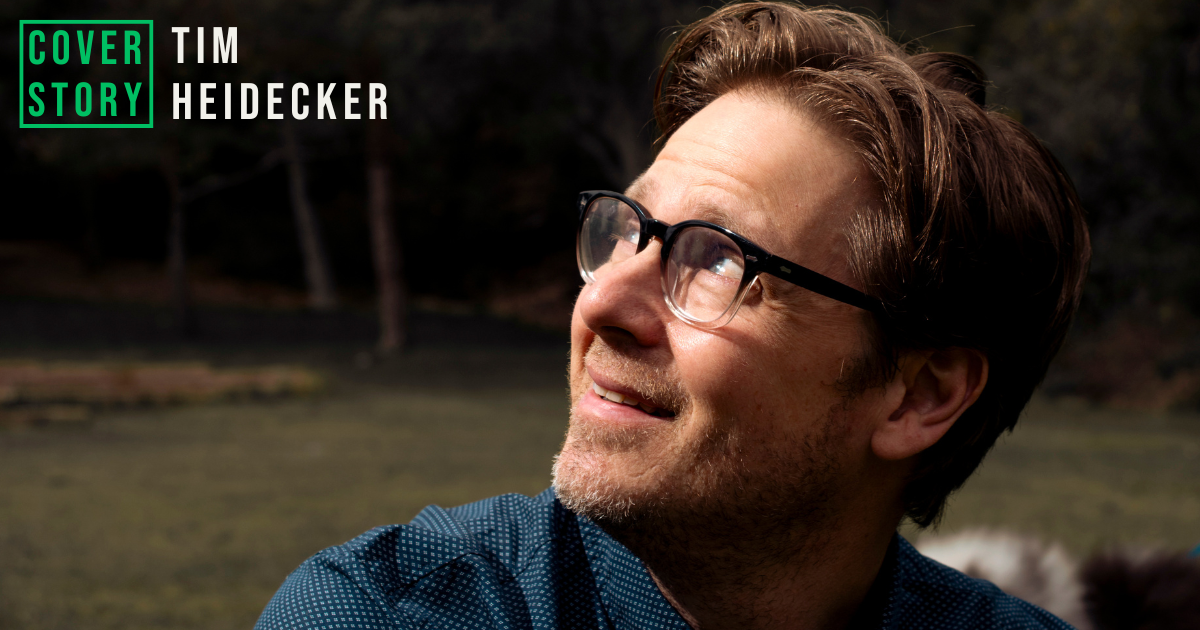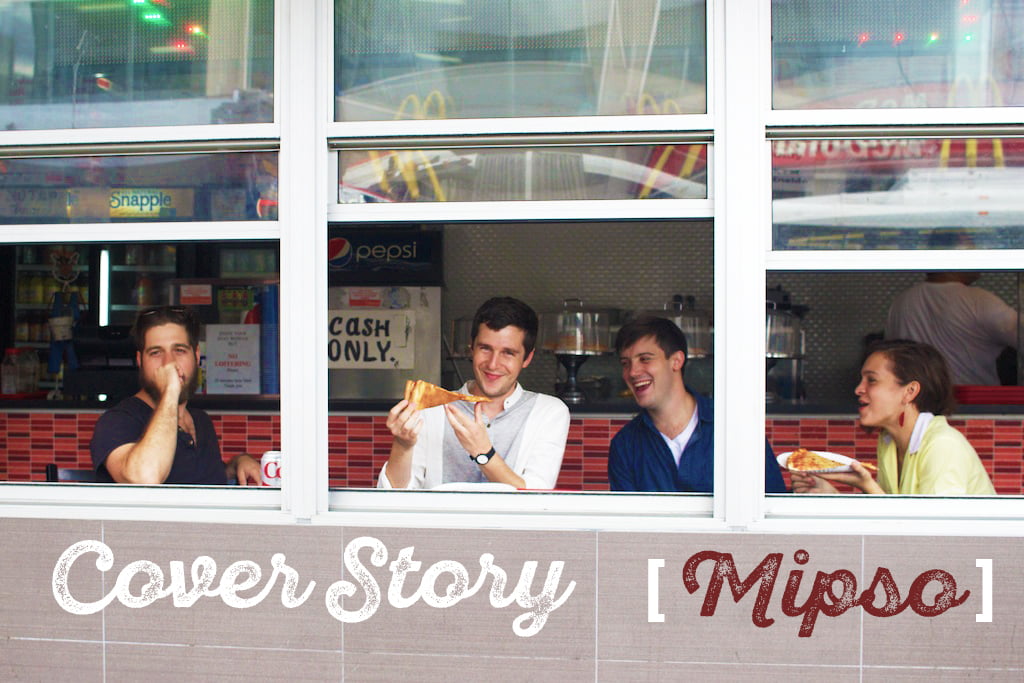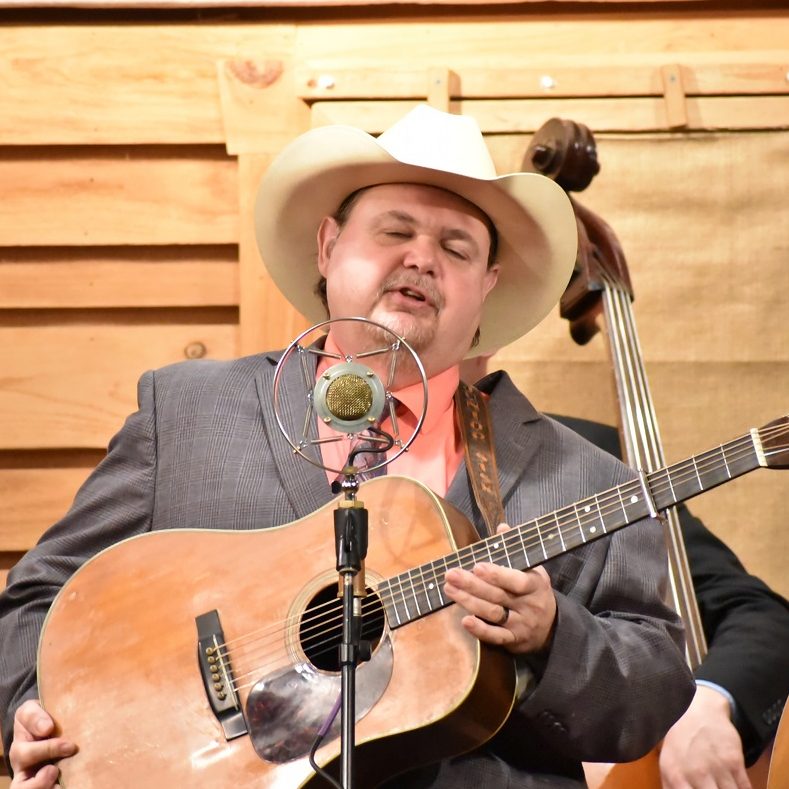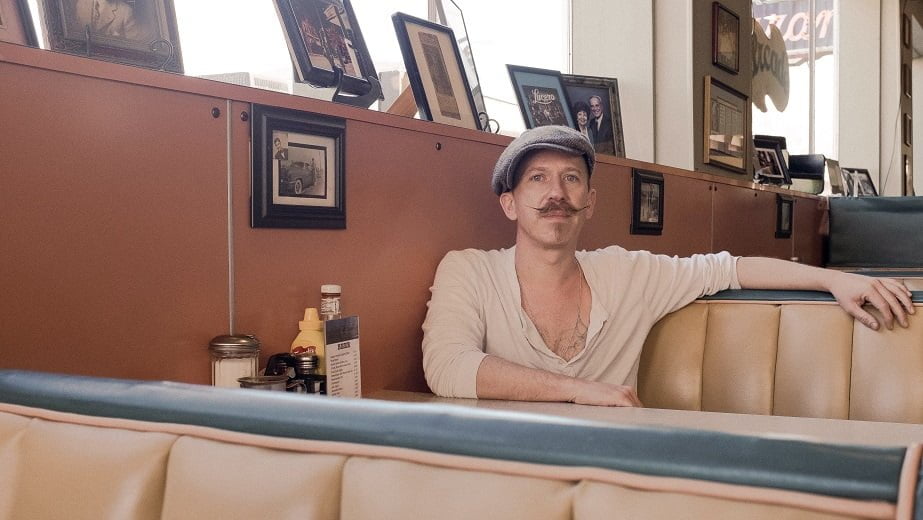Sitting in a Nashville hotel room one recent morning, Tim Heidecker is awaiting his Americanafest showcase. It’ll take place later that evening at 3rd & Lindsley. And Heidecker’s dreading the gig. Not because he doesn’t enjoy the act of performance. It’s simply the format in which the show will be set up: solo.
“It’s not my preferred way of presenting my songs,” Heidecker says. “I just came off the road with my band. Playing every night for two weeks. I’m a little road tested and warmed up. But, these songs benefit from other people playing them with me.”
That sense of vulnerability and, perhaps, a slight fear of what may or may not lie just around the corner of the grandiose ether surrounding all of us are core themes at the heart of Heidecker’s latest album, Slipping Away.
Though many may know Heidecker for his comedic brilliance – as part of innovative comedy duo Tim & Eric, on an array of beloved TV shows or across the big screen in major Hollywood films – he’s also been a lifelong singer-songwriter. And a damn fine one, too.
Now 48, Heidecker offers Slipping Away (available October 18 via Bloodshot Records) as a genuine snapshot of a human being wrestling with middle age and the intricacies of daily life. Just like many of us in the same boat of age and awareness.
Sonically, Slipping Away straddles psychedelic alt-country, surf rock, and indie folk. The ethereal attitude and lyrical ethos flows in the same river as Pavement and Wilco, with hints of Guided By Voices and They Might Be Giants felt throughout.
In an era of doom and gloom, Heidecker’s humor and zest are much needed – the notion that sometimes all you can do is laugh in pure amazement at the absurdity of what’s outside your front door.
“They say that Jesus Christ is coming back some day/ But if I were him, I think I would stay,” Heidecker sings during “Bows and Arrows.” “Up in the clouds, hanging out with dad/ Cuz things down here, things are going bad.”
In truth, much like his comedy, Tim Heidecker’s music is aimed at the idea of connectivity. Finding common ground with you and me. And his constant yearning to expose the lunacy and mysteries of one’s existence within the cosmic universe is why we’ve come to turn to Heidecker for comfort and solidarity in uncertain times.
I replayed the album this morning while having coffee with my girlfriend. And, in a good way, I started having existential thoughts. It made me think, “This is an honest snapshot of someone on the cusp of 50, who’s looking at the chaos of their youth in the rearview mirror and looking at the unknowns of growing older through the windshield.”
Tim Heidecker: That’s beautifully put. Can I use that? [Laughs] I mean, yes, I agree with that. It’s funny, you writers, critics and journalists are always better at vocalizing what I’m trying to say than I am. And I appreciate it. These things come from such a subliminal place for me that it’s nice to hear how it’s received or how it’s perceived. A lot of the writing of this record came right after the pandemic. There was this real, palpable feeling of an apocalyptic kind of mentality happening.
It still feels like that every day, though. That’s the world we live in now.
Yeah, for sure. And it was very crisp in 2020, 2021, 2022. In my comedy, I’ve tried a few different times to write shows about that. I’ve had a couple of projects that didn’t go very far, that were sort of about the end of the world. So, it’s been on my mind for a while and I wanted to do a record with that sort of concept or theme. And I started writing songs, letting the record be this way of getting those ideas out of my head.
With the title, Slipping Away, is that a reference to how fast time goes?
Picking the title of a record is always a pain and challenge to crystallize it. But, to me, there’s two meanings. The first half of the record is maybe a little more upbeat and positive and there’s this feeling of being content or being happy. Then, it can also mean things falling apart and disintegrating [in the second half]. There’s Slipping Away Side A and there’s Slipping Away Side B.
There’s also a very ethereal vibe to the album, too, where it’s like a dreamlike state.
Mm-Hmm.
With the song “Hey, Would You Call My Mom for Me,” was that a real encounter you had with somebody?
It was. We were on tour up in Vancouver. They have a big area of Vancouver that’s kind of been surrendered to addicts. They call it “Zombie Town.” I was walking around there and a kid asked me that. It was early in the morning and it took me off guard. I gave him 20 bucks and was like, “Sorry, I can’t.” I just couldn’t get involved. But, I came back to that line of, “Hey, would you call my mom for me?” Especially after the pandemic and living in Los Angeles, seeing a lot of people on the street. I felt like I wanted to capture that moment. Little journalistic songwriting there.
I’ve read that you’re an atheist/agnostic. And I wonder – with the pandemic and just life in general – if you’ve started to have maybe a crisis of faith or identity as you’ve gotten older?
I wouldn’t say crisis.
Recalibration, maybe?
Recalibration is fair. Honestly, I’m fairly firm in my agnosticism. I wouldn’t consider myself an atheist. I think it’s kind of an irrelevant question for me [about] what’s going on outside of reality. But, I’ve started therapy and working on some personal issues, health issues and stuff this past year. I don’t want to say midlife crisis. But, it’s this feeling of like, “Alright, I’ve been kind of coasting on my instincts for a long time. And it’s gotten me to where I am, which is a pretty good place. But, I’d like to figure out how I’m going to spend the rest of my life here – maybe a little happier, a little less anxiety-ridden, easier to be around.”
It’s been a couple years of taking the old car into the shop and getting it adjusted for long-term use. I mean, I’ve been touring with this band for the past couple years. And part of me is like, “Man, love this so much. How many more of these am I going to get to do? How many more of these runs where you’re just on the bus and you’re playing every night?” It takes a lot of work to get to that place where things are going well.
There’s the line on the record – I think it may be my favorite line on the record – [in the song “Something, Somewhere”] that goes, “There is a feeling I get, when things are going good but it’s coming to an end.” You’re at that place where things are working, something you’re working on or a project where you see the end. It’s that end of summer melancholy feeling. And I think you can zoom out and look at your life a little bit that way, too.
I couldn’t find much about your early music years. And I was curious about where music begins for you, and as somebody like yourself who came of age in early 1990s Pennsylvania. Was music just something that was always there?
Yeah. I came from a very musical family. My grandmother was very religious. She could play piano and she could play by ear. So, she could sit at the piano and figure out songs. My mom loved music and my dad was a big classic rock guy. He had a great record collection, then he updated his record collection to tapes as we were driving around in the ’80s. He would play the golden oldies and the best of the Beatles, [those] red and blue compilation [albums] a lot. I was always very performance driven, dressing up and doing shows and playing from as far back as I can remember. We had a piano in the house, and eventually a guitar came around. It was just something my parents really encouraged, I guess. My sister took piano lessons. It was just part of our education. I went to Catholic school, so there was a lot of singing. Just a lot of music around all the time.
Eventually, that led to bands being formed. My cousin had a hardcore punk band. And I gravitated towards those kinds of people who were also into music. I had an uncle who had really great taste in music and turned me on to all kinds of artists in the ’80s and ’90s [like] Billy Bragg. I remember him being a big fan of [Billy]. And it was fairly easy to put a band together. We all wanted to be on TV or make movies or create stuff. But, the band was the thing that you could put together after a good Christmas of getting a practice amp and a starter guitar. Your friend has a drum set and you could go into a basement and make something. We used to rent four-track tape recorders from the music store and make demos.
I hear a lot of influences on Slipping Away – indie rock, folk, alt-country. I hear a lot of stuff, too, that I grew up in the ’90s loving. I hear some Pavement influences. With Pavement, they always came across as a band where you could do whatever you wanted, and a song can be whatever you want it to be – something I always loved about them.
I loved Pavement. In fact, they’re a really important band for me, because when I was in high school my head was really firmly in the classic rock ’60s and ’70s world. I didn’t really connect to anything modern. I didn’t like pop punk music. I mean, it was okay. But, I didn’t really like the hardcore scene, the emo scene. I found it really boring and exhausting to listen to, and I couldn’t hear what they were saying. I didn’t like a lot of hip-hop. Whatever was happening in the early ’90s, I was not connecting with it.
And then I heard [Pavement’s] Crooked Rain, Crooked Rain record. I remember hearing the drumstick in [opening track] “Silence Kid.” And I was really into Exile on Main St. by The Rolling Stones, so it was a connection, a through line from the Stones to Pavement, where it felt like, “Oh, these guys are happening now.” That opened me up to Guided By Voices, The Jon Spencer Blues Explosion, Yo La Tengo, and that Matador Records scene. I was like, “Oh, I am of my age now. I’m of my time.” [Laughs]
When you’re touring, is it weird people may have preconceived notions of what to expect and expectations that aren’t accurate?
Yeah. I mean, that’s diminishing a little bit now. I think people are getting the message. There’s still people that are confused. They’re waiting for the punchline to drop. It took me a while to figure out how to behave as a performer when I’m doing my music. I’ve found this little sweet spot, where I can still be funny and I can still be myself. I don’t have to pretend to be this pretentious singer-songwriter, because I’m not. I’m just me. I don’t want to keep it too serious, so I lighten the mood enough where people get a little bit of both – they get the full picture, they get the full version of me.
One of the songs on Slipping Away is “Dad of the Year,” where you sing about how you had all these expectations growing up and conquering the world, as we all do. And now you’re in your late forties and you’re like, “Well, that didn’t really happen. But, in this other way, I’m actually really happy with where I landed.”
For sure. The goal is to get to that place where you’re content and satisfied with wherever you are. And in the way the world is, it’s very hard to not compare yourself to everything else that’s going on, to people you don’t know. Why do people care about Ben Affleck and J. Lo? [Laughs] When I see a picture of them, there’s this intrusive thought of, “Why aren’t they taking pictures of me?” And if you really are honest, I think everybody has varying degrees of that. And that’s the battle of life – to find ways of knowing how to be happy with where you’re at. But, don’t squash ambition, because ambition is very important, too.
To that, it does feel like you’re in a good place right now.
I’m in a great place. I’m in Nashville. I’m excited for the record to come out. I hope people sit with it. Some records you just need to sit down and listen to. I mean, Slipping Away is only 30 minutes. [Laughs] This isn’t coffee shop music.
Photo Credit: Chantal Anderson



